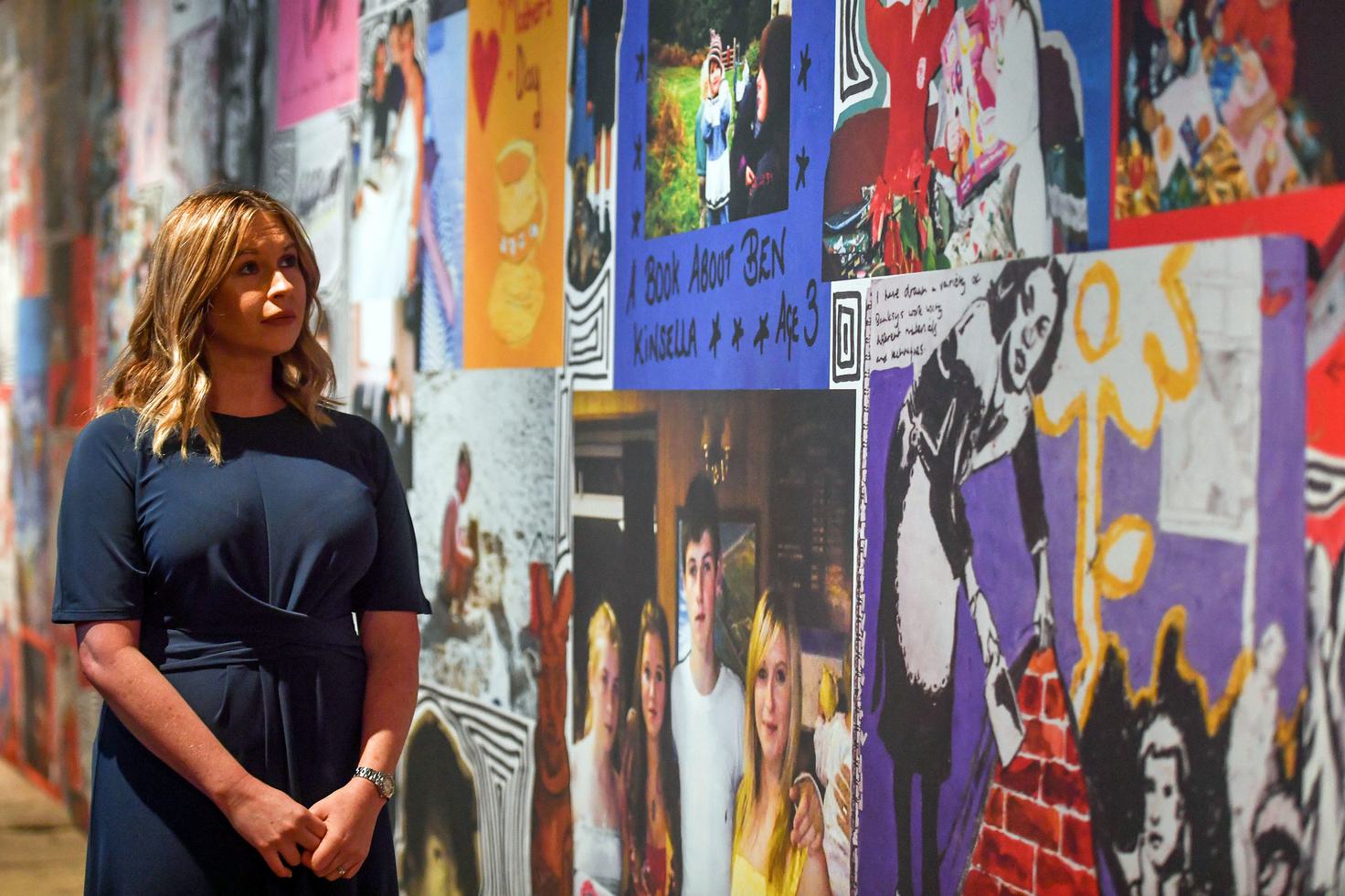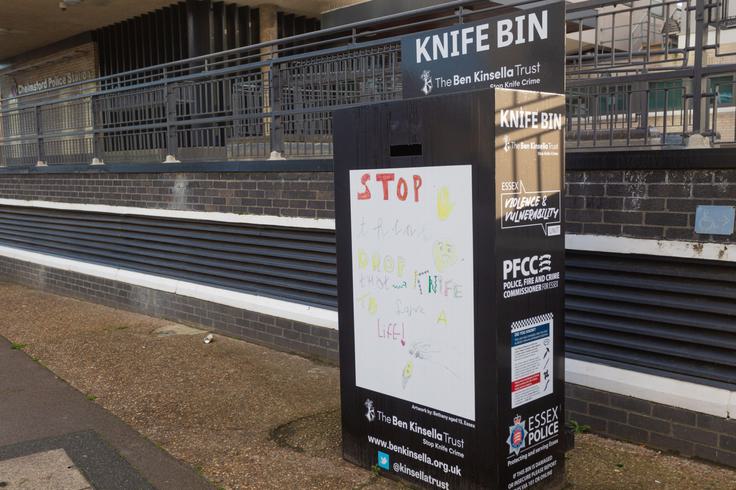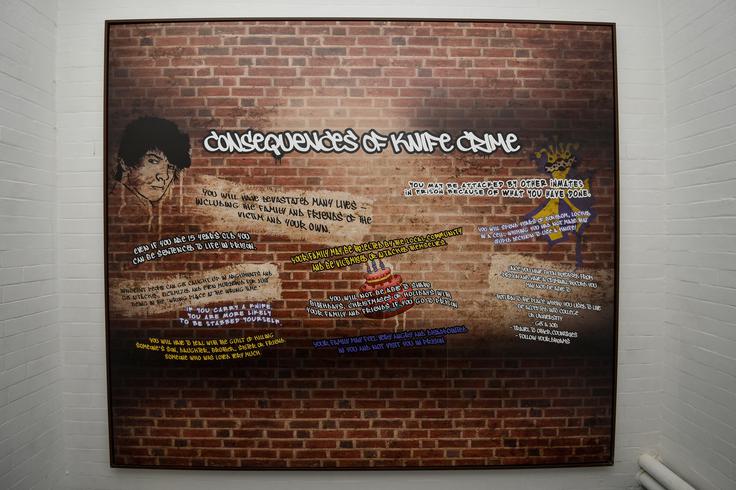
Words by Abi Scaife
There were 48,716 incidents of knife crime in 2023, according to police records.
More than ever, knife crime is posing a threat to people in the UK - particularly young men - and more than ever, we need to work together to end it.
Charities like the Ben Kinsella Trust are instrumental in educating people about knife crime and helping to bring an end to it once and for all.
Smiley News caught up with Tamika Martin, a Learning Facilitator at the National Justice Museum, Nottingham, who delivers knife crime workshops on behalf of The Ben Kinsella Trust, to hear her thoughts.
“We try to dispel the myths around knife crime and carrying,” explains Tamika, who delivers workshops on knife crime at the National Justice Museum.
“The workshops are primarily to deter young people from thinking it's cool.”
The Ben Kinsella Trust is a charity created in memory of Ben Kinsella, who died as a result of knife crime at age 16 in a senseless, unprovoked attack.
Since then, his family has used the charity to fight towards ending knife crime through educating young people and campaigning for change.
‘Choices and Consequences’ is a two-hour knife crime workshop, created through the partnership between The Ben Kinsella Trust and the National Justice Museum. It takes place in the museum’s Victorian-era police station, giving people a chance to see, close up, the effects of knife crime on people’s lives.
“We go around the Ben Kinsella exhibition and in each room, the young people and the adults can tap in to learn more about Ben,” says Tamika. “Who he was, what happened to him, his family - and the perpetrators, and what happened to them.”
According to the National Justice Museum, the exhibition has already been shown to have a positive influence on children and young people, and how they view the choice to carry a knife.

Since 2019, despite the COVID-19 pandemic, the workshop has educated thousands of children on knife crime, and the devastation it can cause.
Tamika says: “It's an amazing workshop and it can be tailored as well to the needs of your people. We really hone in on our approach and in persuading them that [knife carrying] is not the way to go.”
Tamika, who has personally been affected by knife crime, has spent a long time passionately working to educate young people on the topic. It is clear how much she cares about the work she does as she speaks - and how dedicated she is to making a difference.
“I used to go and talk in these gang prevention workshops - and that was quite rewarding, sharing my own situation,” she explains. “That was really rewarding and it was really humbling to see some of the young people gravitating to my message.”
There is no picking and choosing about which children they want to educate, says Tamika. As the story of Ben Kinsella shows, there is no one variety of children who could be affected by knife crime.
To typecast young people around knife crime, and restrict education based on that, is not only doing a disservice to those young people on both sides of the line - it is downright dangerous. Anyone can become a victim of knife crime - therefore, everyone needs to know about it.
“Some children have never been in a situation where they've consumed anything about knife crime or violent crime,” says Tamika. “Then [for] some it’s prevalent to them and it's their normal, everyday life.”
But why has knife crime become the epidemic that it is today? We even have celebrities like Idris Elba speaking out against knife crime, and calling on the UK government to make changes. So - what is the root cause?

Tamika says: “We need to be myth-busting here - it’s a cycle of people feeling like it's cool to carry. And with that comes threatening behaviour - and then the people that carry think they’re untouchable.”
Tamika urges people to “be a piece of the puzzle”, and find a way to get involved in preventing knife crime. To speak up, speak out, and become involved with young people, charities and workshops so that we have a chance to break the cycle.
“Young people are the next generation - [but] we do have a problem,” explains Tamika. “We should be trying in a unified approach to find ways to try to combat this.”
Learn more about the Ben Kinsella Trust, and how to get involved with their work, here.
Learn more about the National Justice Museum here.
At Smiley Movement, we like to elevate the work of charities across the world. Here are three charities whose causes align with the themes in this article.
The Ben Kinsella Trust. This is an anti-knife crime charity. We educate young people away from youth violence and campaign to stop knife crime. Learn more here.
Lives Not Knives. This youth-led charity works to prevent knife crime, serious youth violence and school exclusions by empowering young people. Support them.
Steel Warriors. This is an anti-knife crime charity that melt down knives taken off the streets and recycles the steel into outdoor street gyms. Find out more here.
This article aligns with the UN SDGs Good Health and Wellbeing and Partnerships for the Goals.